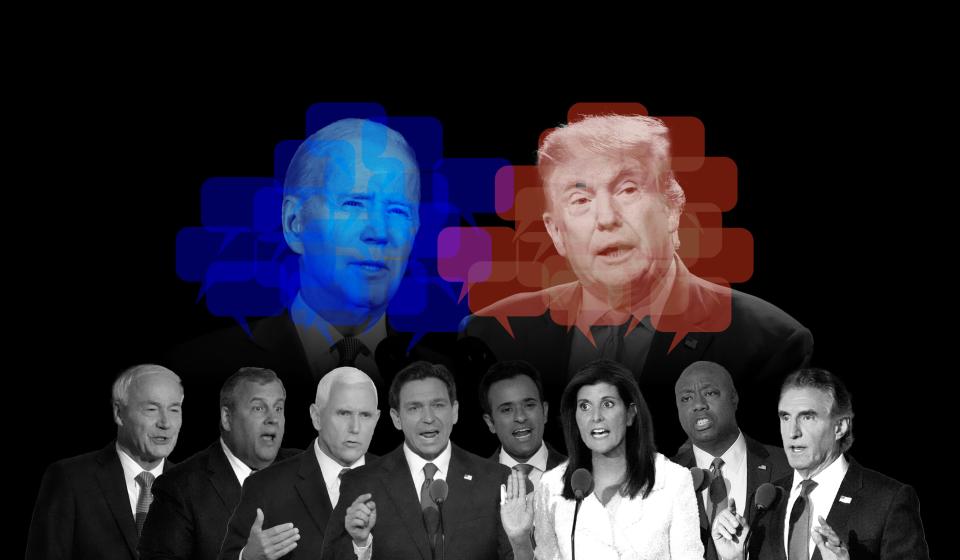US needs an urgent action plan to save presidential debates | Opinion
The modern norm of televised presidential debates may not survive our highly polarized political environment, unless a new action plan is established soon to ensure this staple of American electoral life continues in 2024.
In 1960, on a one-time-only basis, Congress enabled the historic Kennedy-Nixon debates to take place. The law it suspended – Section 315(a) of the Communications Act of 1934, which required “equal opportunities” for all candidates – subsequently resumed in full force. As a result, there were no presidential debates in 1964, 1968 or 1972.

But in 1975, the Federal Communications Commission finally sanctioned broadcasters to air political debates. The Ford-Carter debates were held in 1976, and in every subsequent election, debates also have been a centerpiece of presidential campaigns. Major-party presidential candidates risk creating an enormous backlash if they opt out, which might even change an election outcome.
Since 1987, a nonprofit organization – the Commission on Presidential Debates – created with the blessing of the Democratic and Republican National Committees has been the sole sponsor of these forums. But the existence of presidential debates now seems to be in peril. The RNC announced last year that it had unanimously voted to end its participation in this group.

With the 2024 election looming larger with each news cycle, it’s especially timely that a new pathway is in place soon for presidential debates to occur. Waiting until after the nominating conventions next summer to establish a framework will be far too late, increasing the possibility that no debates will take place.
There are a number of viable alternatives that could be deemed to be satisfactory to Democrats and Republicans alike. Returning sponsorship to the truly nonpartisan League of Women Voters, which sponsored the debates in 1976 and 1980, would be one step back to the future. It also would signal the critical importance that female voters will have in the election’s outcome.
Another possibility could be a joint sponsorship by two nonprofit organizations that lean right and left, to reflect the respective dominant ideologies of Republicans and Democrats. The Federalist Society for Law and Public Policy Studies has stated objectives such as "checking federal power, protecting individual liberty and interpreting the Constitution according to its original meaning.” These reflect a conservative philosophy that all GOP candidates in the 2024 field would support enthusiastically.
Hear more Tennessee voices: Get the weekly opinion newsletter for insightful and thought-provoking columns.
Its liberal counterpart is the American Constitution Society. Its website notes, “Our mission is to support and advocate for laws and legal systems that strengthen our democratic legitimacy, uphold the rule of law, and redress the founding failures of our Constitution and enduring inequities in our laws in pursuit of realized equality.” The Democratic National Committee would be in accord with these values, too.
Both organizations notably share the intellectual confidence to allow opposing views to be expressed by speakers at their events. Their joint sponsorship surely would select well-informed, provocative moderators who would be sure to have the candidates frame their divergent approaches with more clarity and fewer theatrics.
Other similar joint sponsorship possibilities — such as the Republican Governors Association and the Democratic Governors Association — also are worthy of being considered.
The bottom line is that these options need to be reviewed and agreed upon by the end of the year. This would allow for acceptable ground rules to be established early in 2024, followed by site selection and scheduling for three presidential debates (and one vice presidential debate).
With a renewed perception of greater impartiality and a much-needed sense of gravitas, the real winners would be those these debates always should strive to serve — our nation’s voters.
Stuart N. Brotman is an endowed professor of journalism and media law and leadership at the University of Tennessee at Knoxville. He is the author of "The First Amendment Lives On."
This article originally appeared on Knoxville News Sentinel: Opinion: US needs an urgent action plan to save presidential debates

